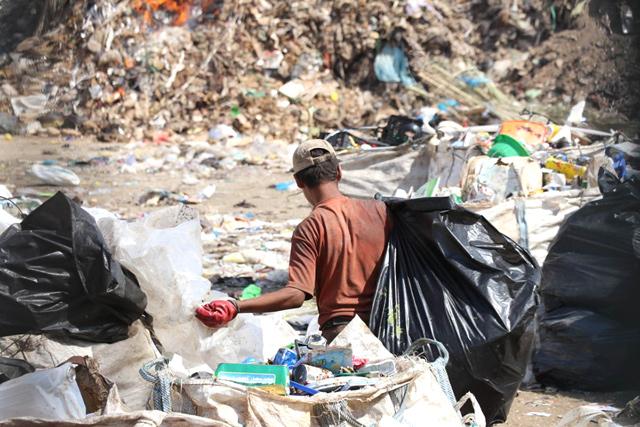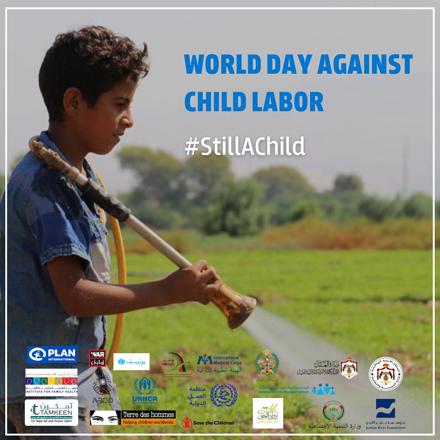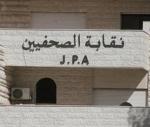You are here
‘Caravan of Joy’ traverses Jordan to bring end to child labour
By Hanna Davis - Jun 15,2022 - Last updated at Jun 15,2022

Children participate in the ‘Caravan of Joy’ event in Ghor Al Mazraa, Karak, on Tuesday (Photo by Hanna Davis)
GHOR AL MAZRAA, Karak — UNICEF Jordan and its implementing partner, Rowad Al Khair, this week are leading the “Caravan of Joy” to bring activities and awareness-raising sessions to children from areas vulnerable to child labour in the Kingdom.
The prevalence of child labour across the Kingdom is “alarming”, Chief of Child Protection at UNICEF in Jordan Mariyampillai Mariyaselvam told The Jordan Times.
The most recent study on child labour in Jordan, the National Child Labour Survey, conducted in 2016, found that almost 76,000 children were engaged in child labour, nearly 60 per cent of whom work in risky environments.
Mariyaselvam told The Jordan Times that now in the pandemic’s aftermath, the lack of an official and updated study on the matter leaves the scope of the increase unclear.
The caravan set off in Ruseifa, Zarqa Governorate, on June 12 to mark the World Day Against Child Labour, and concludes Thursday in Aqaba.
Child labour in agriculture
The caravan on Tuesday stopped in Ghor Al Mazraa, Karak, an area vulnerable to child labour, primarily in the agriculture sector.
Rowad Al Khair, in cooperation with UNICEF, opened programmes in the Southern Ghor area in March; the most recent location of the UNICEF Child Labour programmes, according to Mohannad Al Hami, a UNICEF Jordan Child Protection Officer.
The agriculture sector until 2022 was not considered an “organised sector”, so did not require the Ministry of Labour’s inspection visits, leaving child labour largely unseen, Hami told The Jordan Times. Hami expressed concern that now the ministry’s limited capacity will leave it unable to carry out the scale of visits necessary to monitor the sector.
Children working in agriculture are often exposed to hazardous chemicals, extreme working conditions and exploitation and abuse by farm managers, Arwa Abuqudairi, a case manager for Rowad Al Khair association in Southern Ghor, told The Jordan Times.
Ghanima, who lives in Ghor Al Mazraa, has three boys who dropped out of school to work due to economic hardships. Her eldest, 22, was unable to return to education due to working at a young age and is now unemployed, she told The Jordan Times.
Her two younger children, Ayed, 17, and Mousa, 13, who attended Tuesday’s Caravan of Joy event, were out of school for two years, but recently returned to their education thanks to Rowad Al Khair’s support, she said.
Ayed told The Jordan Times that when he was working “one of the hardest things was to wake up to work rather than go to school”.
He said that most of his friends also work and “half have completely dropped out of school”.
Abuqudairi, the case manager, noted that poverty and unemployment, as well as the lack of affordable transport to schools are contributing factors to child labour in the Southern Ghor area.
Sustainable solution
In just the past month, Rowad Al Khair has helped 140 vulnerable children in the South Ghour return and stay in school, said Ali Al Zataimeh, the Rowad Al Khair Senior Case Manager in the area.
Rowad Al Khair, in coordination with the UNICEF Child Labour Programme, provides families of at-risk children specialised support, including information on the negative impacts of child labour and access to sustainable livelihood opportunities, according to Hami, the UNICEF Jordan Child Protection Officer.
Key to these efforts are engaging local community members and influencing social norms to protect children and women, Hami said.
Abuqudairi noted that a problem Rowad Al Khair faces is when “a child doesn’t know that they shouldn’t be working”.
Of the Caravan of Joy’s activities on Tuesday was a puppet show; the characters speaking to the young audience of the importance of going to school.
Dawood Ali Al Huwaimeh, a community leader from Ghor Al Mazraa who attended the event, highlighted the issue of school drop-outs in the community, adding that working is “mentally hard for the children”.
Huwaimeh told The Jordan Times that he hopes the programme continues “not just for a couple of months”.
Abuqudairi said the local community has been very receptive to Rowad Al Khair’s work: “Everyone knows that there is a big problem — a big problem and we need a solution”.
Related Articles
AMMAN — Secretary General of the Ministry of Social Development Barq Al Dmour and Director of Social Development in Maan Amjad Al Jazi on Tu
AMMAN — A new UNICEF programme has been launched to “end the worst forms of child labour” in Zarqa and Amman by helping hundreds of children
AMMAN — Child Labour Task Forces that include ministries, governmental entities, organisations and associations on Sunday launched a s















